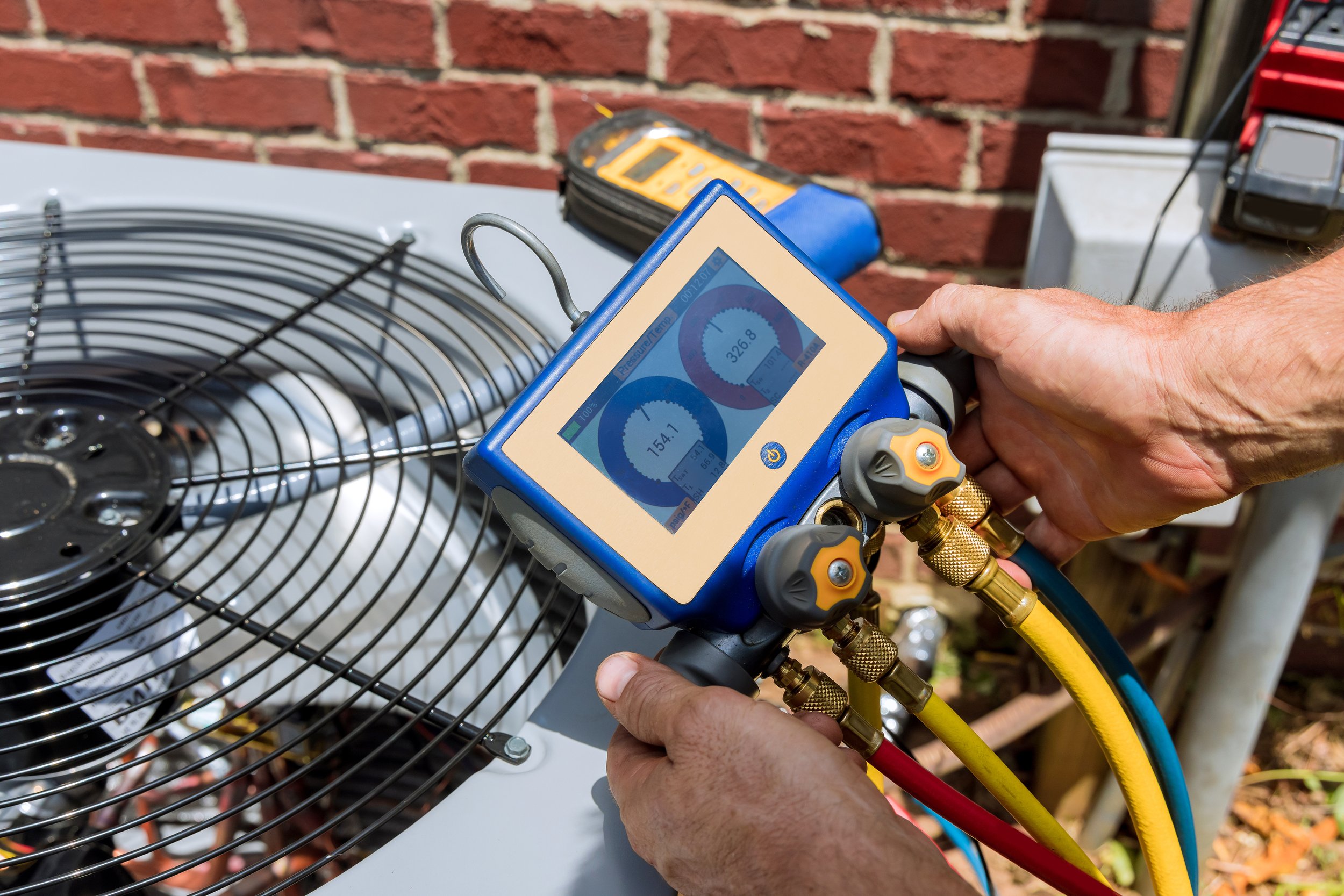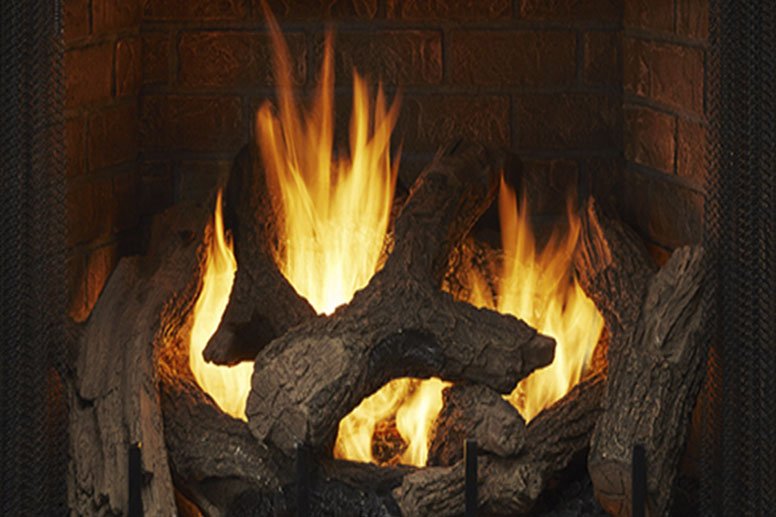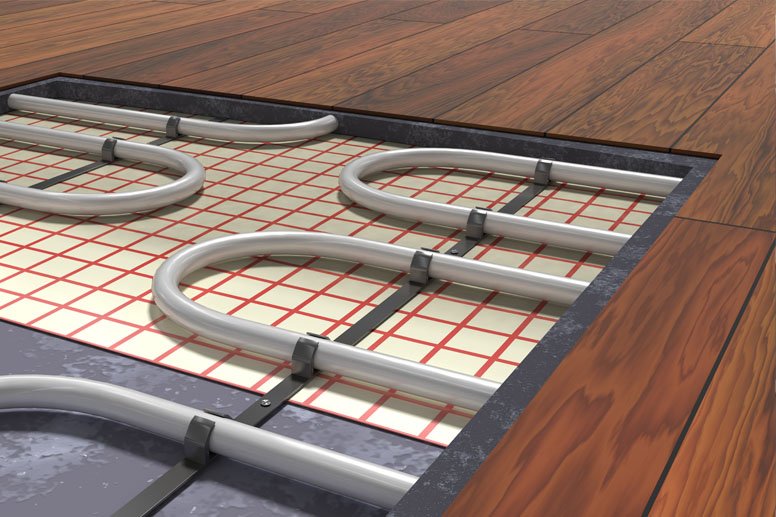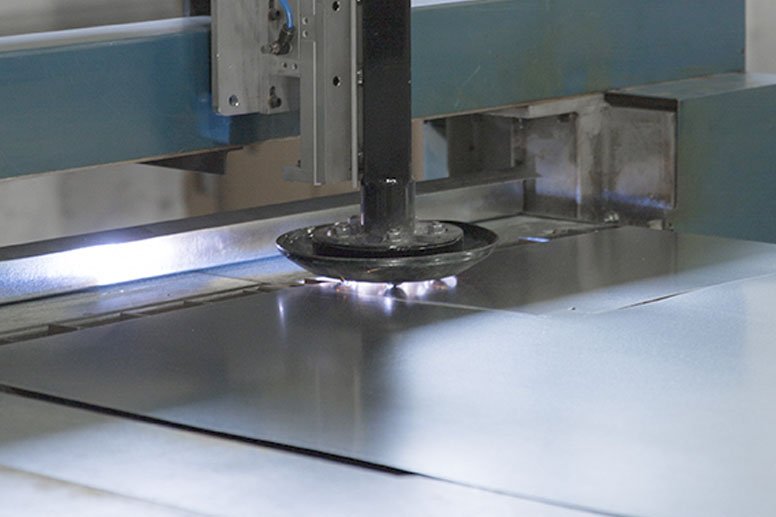
Radiant Floors
High-efficiency luxury home comfort
Our hydronic radiant heating experts will work with general contractors to fulfill your radiant heating installation needs.
Is Radiant Floor Heating An Option For You?
Are you planning a remodel/addition or new construction project? If yes, radiant floor heating is a wonderful option for you to consider. The most common applications are residential or commercial: new construction, remodels and new additions.
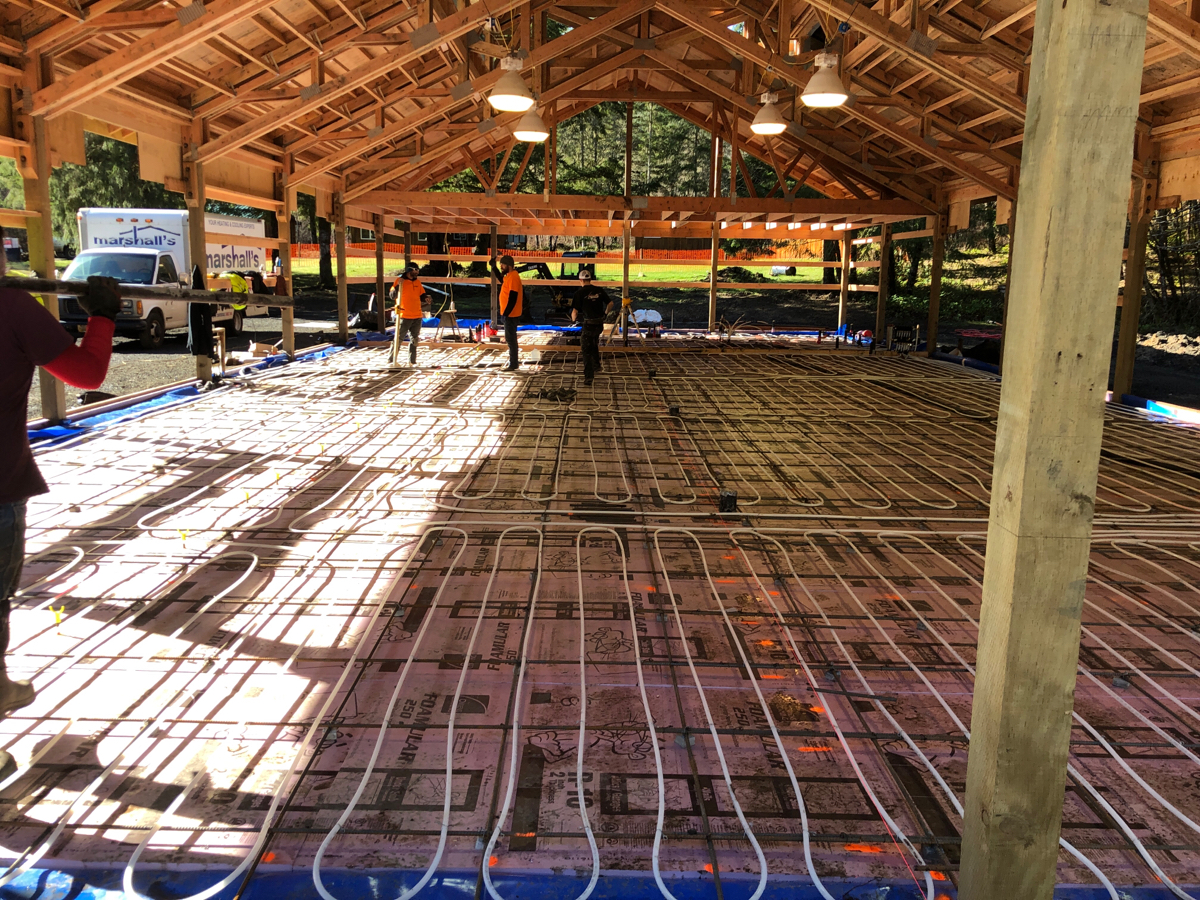
The Benefits
Radiant floor heating is often called the silent hero of home heating. Since the heat emanates from the floor, its efficient and quiet because there are no cold air drafts from air blowing or heat loss through duct work, registers, and returns. The in-floor radiant heating transfers heat from the floor to people and objects in the room which in turn radiate that heat and help provide an even, ambient temperature around you. Although the air is not heated, the ambient warmth from the floor and objects in the room create a warming experience even when the air in the room is at a lower ambient temperature. Another wonderful advantage is there is less heating stratification from radiant floor heating. Stratification is when the heat rises and the temperatures between floors in the home or building causing them to be several degrees different.
How Do Radiant Floors Work?
In radiant floor heating, warmth comes from hot-water tubes buried within or beneath the floor. As mentioned above, the heat waves rise and warm the objects they strike. You stay warm, because these objects have their own heat and aren’t taking yours. Compare this to conventional forced-air heat, which is what most American homes have. Air blows from registers at a temperature of 120 degrees Fahrenheit, where it rises to the top of the room, then drops back down as it cools. This explains why your toes could still be cold while your head is warm. Also forced-air heating systems cycle. You turn on your furnace, it heats to the designated temperature, then it shuts off. This cycle repeats, making the temperature in your home uneven due to the series of ups and downs with the temperature. Radiant floors produce an even, constant, cost-effective heat, most effective with most types of finished flooring, including hardwood and tile. Carpeting isn’t recommended due to the carpet padding beneath––it stifles the heat.
What is Hydronic Radiant Heat?
Marshall’s installs hydronic radiant heat systems. A boiler or water heater heats water to between 100 and 120 degrees Fahrenheit, and it’s circulated through tubing beneath or within the floors. We use top of the line Uponor PEX flexible tubing designed for strength and durability which can be installed in a myriad of ways––on top of the subfloor in grooved panels or snap-in grids, clipped into aluminum strips on the underside of the floor, or embedded in poured concrete.
How Much Do Radiant Floors Cost?
The installation of radiant floor heat costs more initially than more conventional heating systems, like forced air heating or ductless heating systems. But in the long run, it can help save energy and money due to lower thermostat settings and higher efficiency. Radiant floor heating does not address a home’s cooling and fresh air exchange which is why Marshall’s generally recommends you install a cooling system and an energy recovery ventilator (ERV) to cool your home and bring fresh air into your home, which are separate purchases to consider. If you are interested in learning more about radiant floor heating and would like to get a cost estimate, please contact Marshall’s today.
WHY CHOOSE MARSHALL’S FOR YOUR INSTALLATION?
Marshall’s is a full service, factory-authorized dealer with over 1,000 years of combined team experience to care for your heating, cooling, insulation, fireplaces and water heating needs. Contact us today to schedule your complimentary estimate!
Our Services
Need Routine Maintenance, Repairs, Estimates & Installation?



